Table of Contents
Introduction
At Roam Traveller, we believe that travel should leave a mark on the soul, not the planet. As I’ve wandered through rainforests, climbed mountains, and swum in pristine waters over the past decade, I’ve seen firsthand how responsible travel isn’t just a trend—it’s a necessity for preserving the places we love to explore.
The good news? Sustainable travel doesn’t mean sacrificing adventure or comfort. In fact, my most meaningful journeys have been those that connected me deeply with local communities and natural environments while treading lightly on the Earth.
From misty rainforests and icy fjords to sun-drenched coasts and high-altitude homestays, I’ve curated a list of seven unforgettable eco-friendly travel experiences that changed how I see the world. These journeys redefine what it means to explore—with reverence, respect, and a passion for preserving the magic we encounter along the way.
1. Treehouse Escapes in the Costa Rican Rainforest
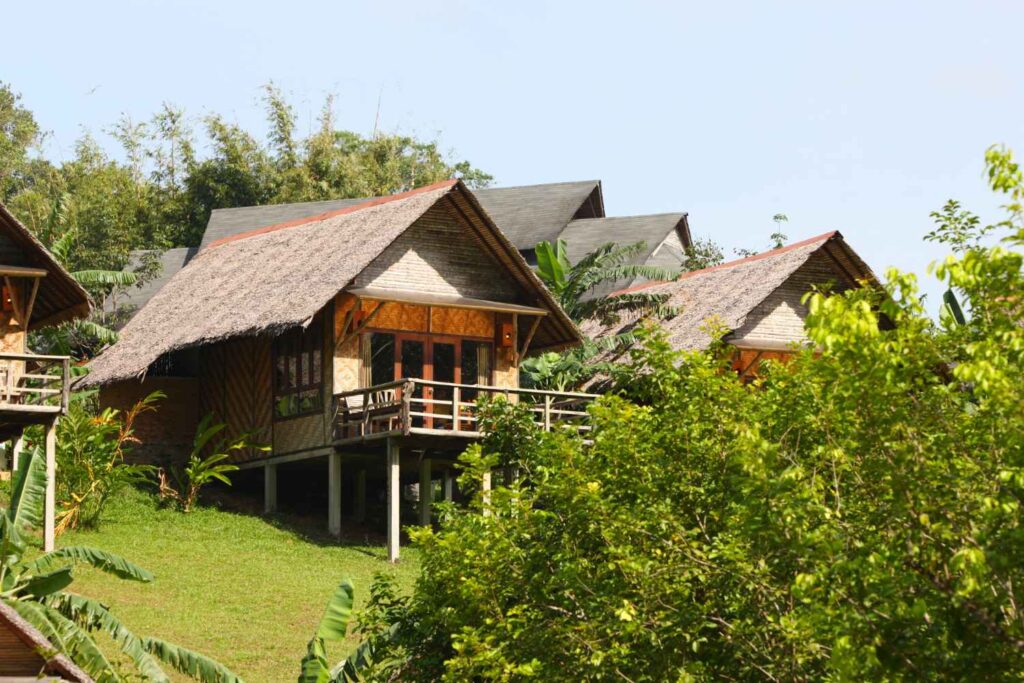
Where: Finca Bellavista, Puntarenas, Costa Rica
Why it’s Eco-Friendly: This off-grid treehouse community in southern Costa Rica is a fairytale come to life—powered entirely by solar energy, sustained by rainwater catchment systems, and immersed in over 600 acres of protected rainforest.
Experience it: I’ll never forget waking to the chattering of howler monkeys and the fragrant bloom of passionflowers outside my window. My mornings began with misty hikes through primary rainforest and cups of freshly brewed organic coffee from nearby co-ops. The simple luxury of reading in a hammock while toucans flew overhead made me question why we ever build homes on the ground.
At night, I stargazed from my treetop perch, wrapped in the symphonic hum of the jungle and the magical glow of fireflies. There’s something profoundly restorative about falling asleep to rainfall on a tin roof, knowing you’re suspended in a thriving ecosystem that your visit is helping protect.
Impact: Your stay directly supports forest conservation, funds local community programs, and helps preserve vital wildlife corridors teeming with biodiversity. The community has protected over 300 bird species and countless plants found nowhere else on Earth.
2. Elephant Conservation Volunteering in Chiang Mai
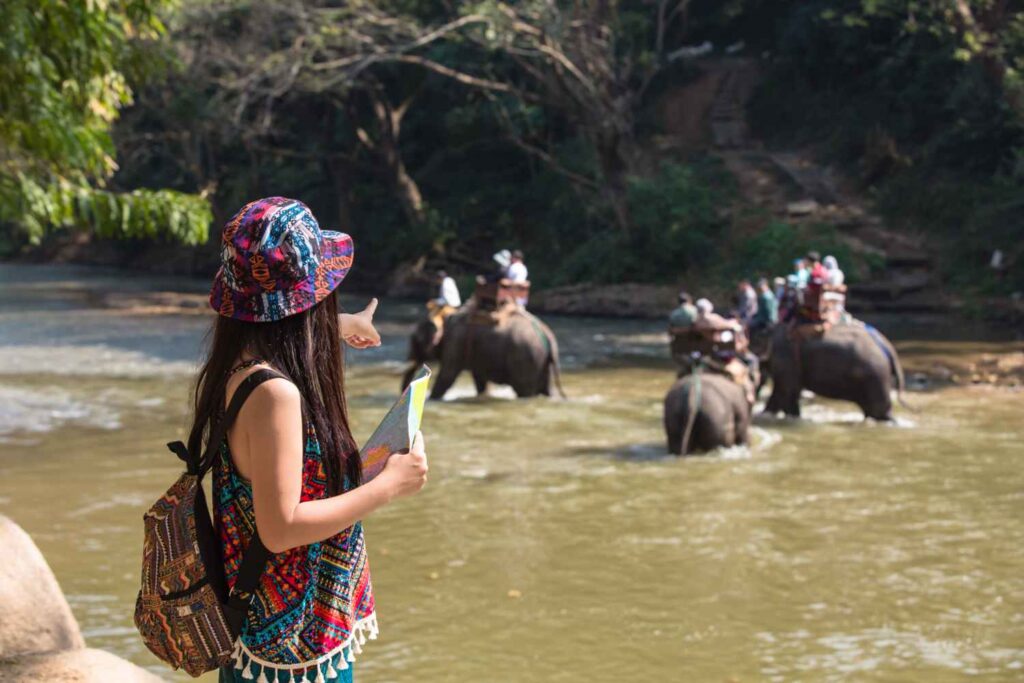
Where: Elephant Nature Park, Thailand
Why it’s Eco-Friendly: Unlike exploitative elephant tourism, this sanctuary rescues elephants from abusive industries and offers them the dignity of natural living. No chains. No rides. Just healing—for both the animals and the humans lucky enough to witness their recovery.
Experience it: During my week at the sanctuary, I felt the cool mud squish beneath my toes as I helped bathe a rescued elephant named Mae Boon Ma in the river. Her skin was rough yet surprisingly delicate, marked with scars from her former life in logging. I heard her contented rumbles as she munched watermelons we had prepared. These gentle giants communicate in ways that go beyond language—through touch, through presence, through trust slowly rebuilt.
As dusk fell, I gathered around the fire with fellow volunteers from across the globe, sharing stories under the Thai stars and learning about conservation challenges from local experts who’ve dedicated their lives to these animals.
Impact: Your visit funds ethical elephant care, community education, and sustainable jobs for local mahouts who now work as protectors instead of performers. The sanctuary has rescued over 200 elephants while transforming tourism practices across Southeast Asia.
3. Carbon-Neutral Kayaking in the Norwegian Fjords
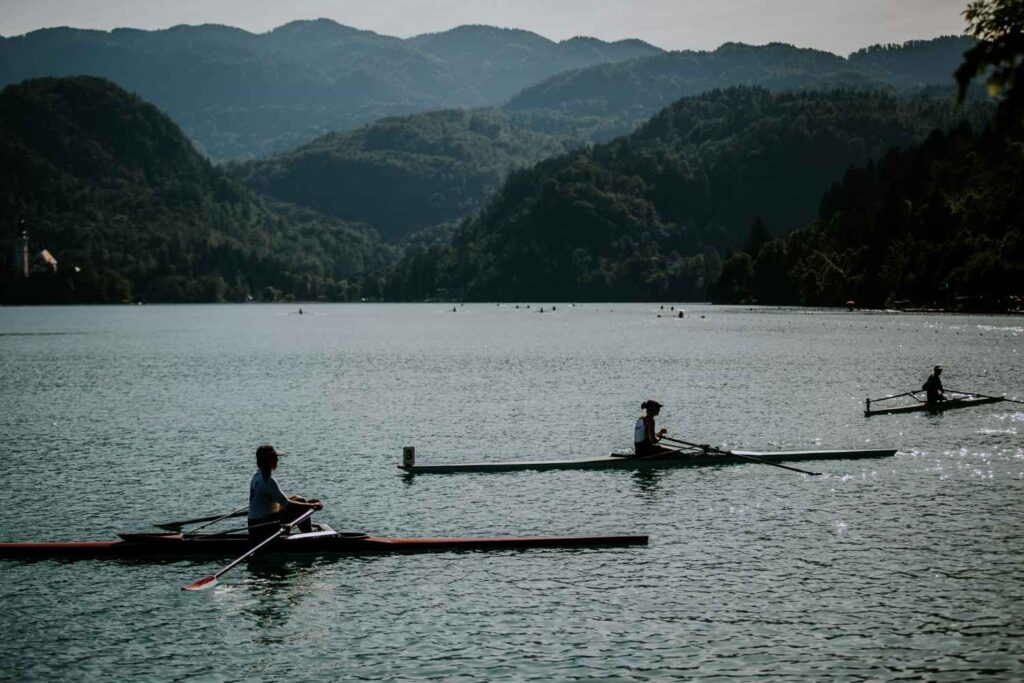
Where: Geirangerfjord, Norway
Why it’s Eco-Friendly: Operated by a certified eco-tour company, this low-impact, human-powered adventure leaves zero emissions and follows strict conservation practices in one of the most protected natural sites in the world.
Experience it: There’s a moment of perfect stillness I found while kayaking the fjords that I’ve never experienced elsewhere. I glided across glacier-fed waters so clear they mirrored the sky, surrounded by towering cliffs draped in emerald green. The only sounds were the rhythmic dip of my paddle and the distant thunder of Seven Sisters waterfall cascading into the fjord.
When evening came, I pitched my tent on a mossy shore beneath the shifting Northern Lights. My guide, Erik, brewed pine needle tea over a small cookstove and shared stories of his grandmother who once farmed these steep slopes. This wasn’t just sightseeing—it was time travel through Norwegian heritage while leaving no trace behind.
Impact: By choosing kayaking over motorized tours, you reduce your carbon footprint in this fragile UNESCO site. A portion of your tour fee supports fjord clean-ups and climate adaptation research that helps local communities preserve their way of life despite changing conditions.
4. Coral Restoration Diving in the Philippines
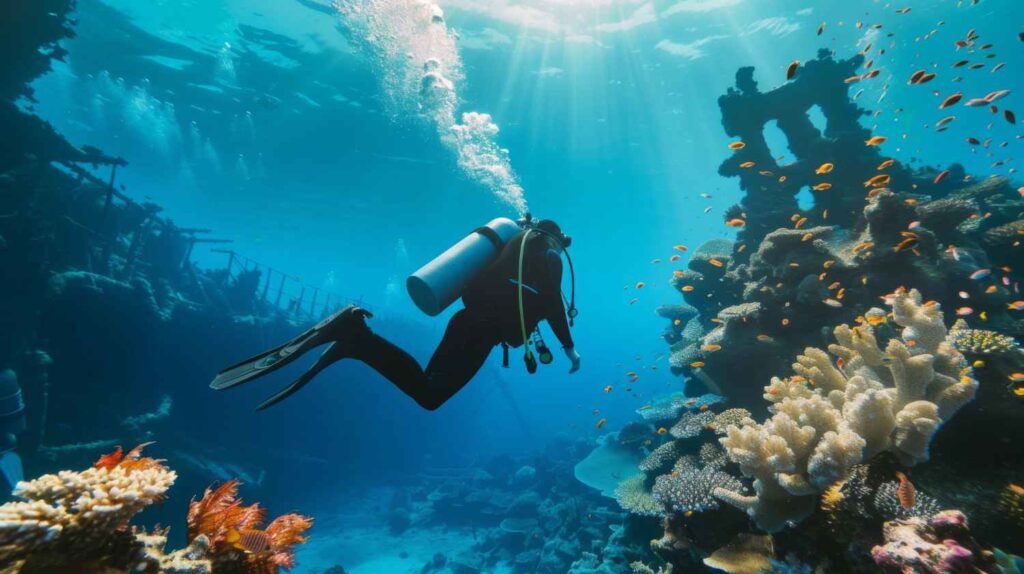
Where: Danjugan Island, Negros Occidental
Why it’s Eco-Friendly: Managed by the Philippine Reef and Rainforest Conservation Foundation, this marine sanctuary is powered by solar energy and dedicated to marine education and reef restoration in an area that’s lost over 40% of its coral coverage.
Experience it: I’ve dived in many places, but nothing compares to the purpose I felt while helping restore a reef. I dove into a kaleidoscope of underwater life, where coral gardens bloomed beneath me as I assisted marine biologists in planting new fragments. Clownfish darted through sea anemones, and parrotfish nibbled at the reef sections we were helping rebuild.
The connection between coral health and community wellbeing became clear during evening talks with local fishermen who described how their catches improved as the reef recovered. Later, I fell asleep to the sound of gentle waves in an open-air cabana, with sea turtles nesting on the shore just steps away.
Impact: Every dive funds coral research, marine education programs for local children, and sustainable livelihoods for the island’s community members, ensuring long-term protection of this delicate ecosystem. The program has successfully restored over 5 acres of damaged reef habitat.
5. Safari with a Purpose in Botswana
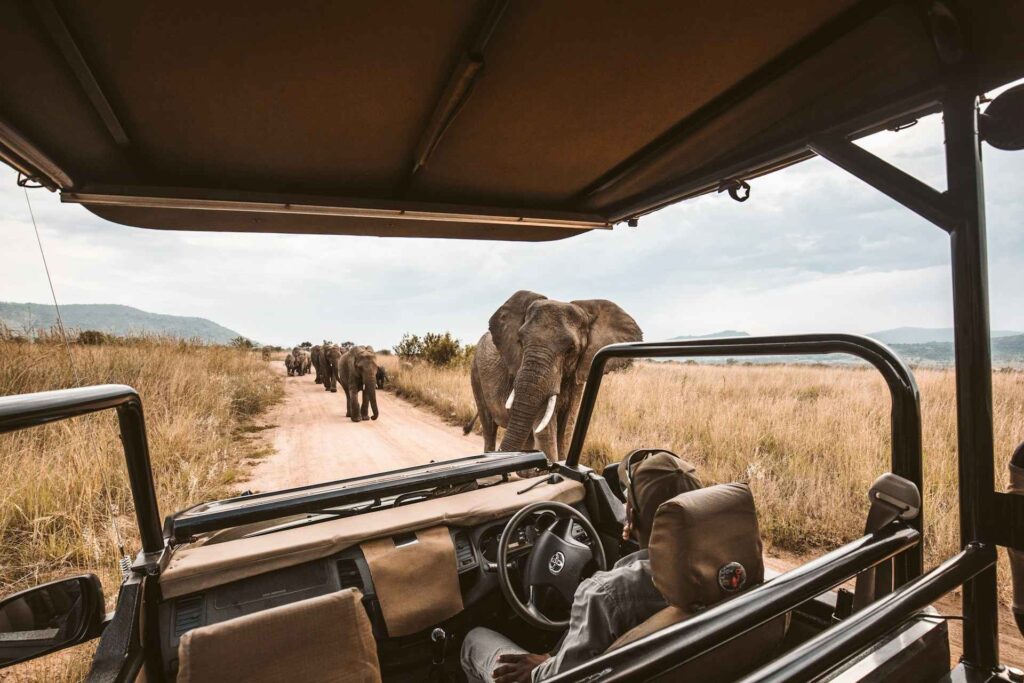
Where: Great Plains Conservation, Okavango Delta
Why it’s Eco-Friendly: These luxury safari camps are built using reclaimed materials, run entirely on solar energy, and invest more than 70% of profits into conservation and anti-poaching efforts.
Experience it: My most profound wildlife encounter happened here, drifting silently in a traditional mokoro canoe through lily-speckled channels as elephants waded nearby, drinking from waters made safe by conservation efforts. I sipped sundowners by the campfire while giraffes grazed against the orange-pink sky. Through night-vision binoculars, I watched a female leopard teach her cubs to hunt—a rare sight possible only because of reduced poaching.
At night, lions roared under a blanket of stars so bright they cast shadows, and I drifted to sleep in my canvas suite with that perfect mix of wilderness immersion and mindful luxury. The guides—all from nearby villages—shared traditional ecological knowledge passed down through generations, creating a deeper understanding than any wildlife documentary could offer.
Impact: Your stay directly funds wildlife preservation, anti-poaching units that have reduced poaching by 85% in protected areas, and local educational scholarships that have sent over 300 students to secondary school and university, turning every luxury into an act of protection.
6. Community Homestays in Ladakh, India
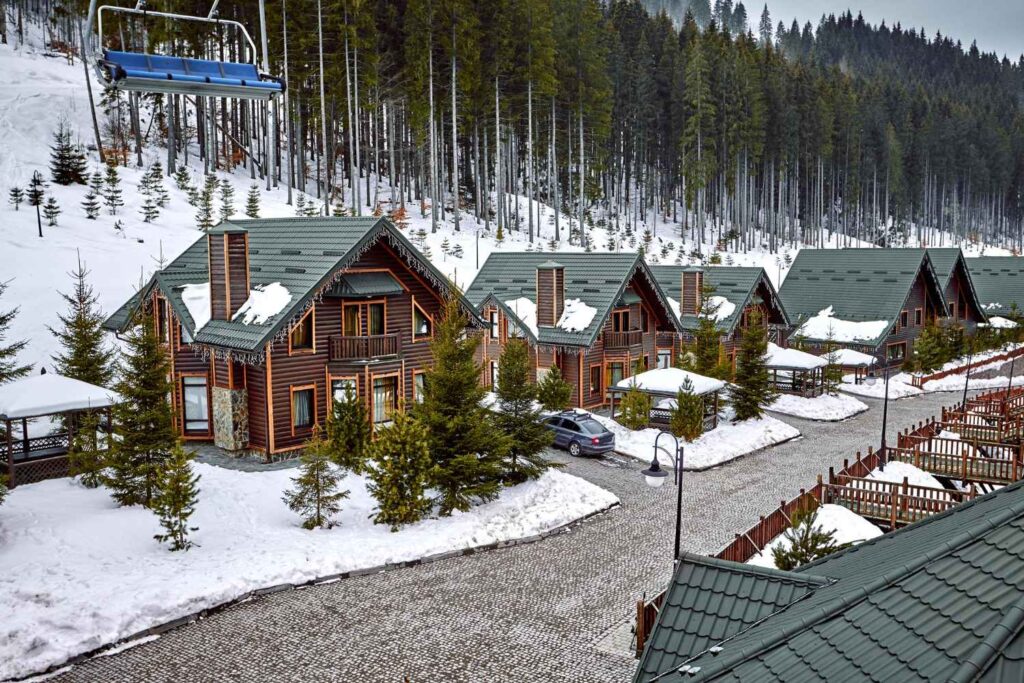
Where: Sham Valley and Nubra, Ladakh
Why it’s Eco-Friendly: Operated by Ladakhi Women’s Travel Company and Mountain Homestays, these stays empower women, preserve local traditions, and embrace solar and composting technologies in a fragile high-altitude ecosystem.
Experience it: In Ladakh, time slows down. I shared butter tea and laughter with my host mother, Dolma, as she taught me to spin yak wool beside a smoky hearth fueled by dried dung cakes—a traditional, sustainable heating method. Though we spoke different languages, we communicated through shared work, food preparation, and genuine curiosity.
I hiked ancient trails once tread by Buddhist monks, marveling at the quiet resilience of this high-altitude desert and its people. In the evening, three generations gathered to sing traditional songs, their voices echoing against mountains that have witnessed centuries of sustainable living. This wasn’t accommodation—it was family, connection, and belonging.
Impact: These homestays provide income for local women (increasing their household decision-making power), slow down rural exodus of young people, and preserve Ladakh’s unique cultural and environmental heritage in the face of rapid climate change that threatens traditional farming practices.
7. Surf & Sustainability Retreats in Portugal

Where: Salty Pelican Retreat, Ericeira
Why it’s Eco-Friendly: Nestled in Europe’s first World Surfing Reserve, this coastal retreat champions composting, local sourcing, zero single-use plastics, and daily beach cleanups alongside yoga and wellness activities.
Experience it: There’s something magical about catching your first wave while knowing your entire stay supports ocean conservation. I breathed in the salty Atlantic air during sunrise yoga sessions overlooking dramatic cliffs. Then, with expert guidance, I hit the surf with my eco-tribe—a diverse group united by love for the ocean and commitment to protecting it.
Between sessions, I joined workshops on making natural sunscreen and participated in a microplastic survey with marine biologists. The community dinners featured locally caught sustainable seafood and vegetables from the retreat’s permaculture garden, with passionate conversations about ocean advocacy flowing as freely as the organic Portuguese wine.
Impact: The retreat funds marine conservation initiatives, works with local NGOs to establish protected marine areas, and educates guests on zero-waste lifestyles, reef-safe sunscreen, and sustainable seafood practices. Former guests have gone on to start environmental initiatives in their home countries, creating a ripple effect of positive change.
Final Thoughts from Roam Traveller
Travel has always been my greatest teacher. But the lessons have evolved from merely collecting experiences to understanding my responsibility as a global citizen. These eco-travel experiences invite you to do more than sightsee—they ask you to connect, protect, and participate.
I’ve watched sunset over the Okavango Delta while knowing my presence helped fund anti-poaching efforts. I’ve shared meals with Ladakhi families preserving ancient traditions despite modernization pressures. I’ve planted coral fragments that will grow into vibrant reefs long after I’m gone.
These moments remind me that true luxury in travel isn’t about thread counts or champagne service—it’s about authentic connection and contribution. It’s about leaving places better than we found them, not just for future travelers but for the communities that call these destinations home.
So pack your bags—not just with your gear, but with empathy, curiosity, and a deep respect for this planet we all share. When we travel with intention, every journey becomes an opportunity to heal rather than harm the places we love.
Ready to explore responsibly? Follow more green travel inspirations and tips at RoamTraveller.com, where we’re constantly discovering new ways to wander with purpose.
Photos from my personal collection can be found in our digital gallery, featuring these destinations and more sustainable travel adventures from around the globe.

